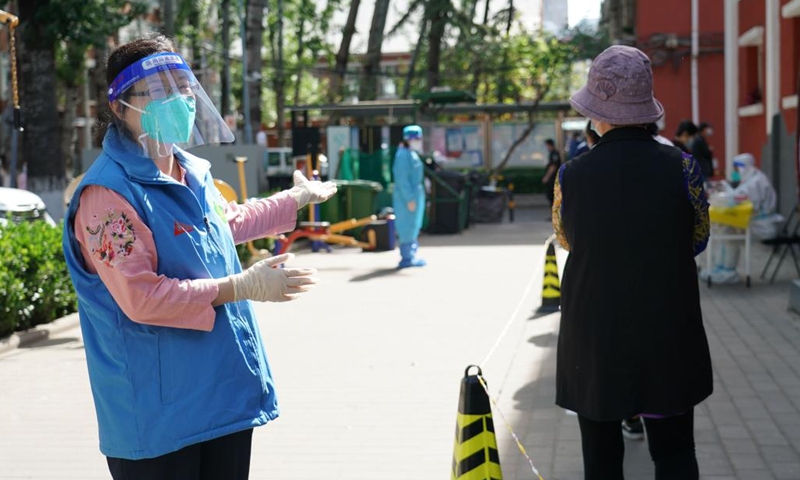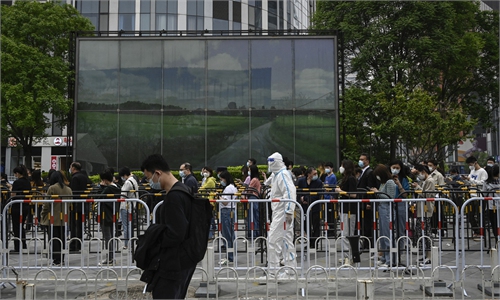Beijing orders more residents to work from home, cuts taxi services to curb COVID flare-up

A community worker guides residents for nucleic acid test in Haidian District, Beijing, capital of China, May 7, 2022. Photo: Xinhua
Beijing has added another district of Haidian in its work-from-home list starting from Thursday, and suspended taxi services to parts of Chaoyang and two other districts, in efforts to bring down an epidemic wave that has by far infected 892 people.
Beijing recorded another 56 cases on Wednesday, all of whom already put under epidemic prevention and control measures before getting confirmed, said Pang Xinghuo, deputy head of the Beijing municipal disease prevention and control center. She added, however, that there still exist hidden transmission chains in the society.
In a late night notice, Haidian authorities announced that starting from Thursday, parts of the district will have its residents to work from home, and working units in other parts will have an attendance rate of less than 50 percent.
Another three rounds of nucleic acid testing will be carried out in Haidian in the following three days.
Taxi and car hailing services to parts of the city will also be suspended starting from Thursday, including southern Chaoyang where infection cases concentrate, and the city's Shunyi and Fangshan districts, municipal transport department said.
Shunyi, where the Beijing Capital International Airport lies, will keep car hailing to and from the airport, but all bus services are halted, local officials announced.
At a press briefing on Wednesday, Beijing authorities stressed that all government bodies, public service departments, and other public venues must check the nucleic acid test results taken within 48 hours before allowing people to enter buildings.
The new measures came after two cluster infections were found in a local bank and a firm. A data center of the Beijing Rural Commercial Bank has reported accumulatively 32 cases, and another state-owned enterprise found 15 infections related to their workplace.
"The capital's epidemic situation is still in a tug of war, with some cluster infections occurring in working units, which added to the uncertainties of epidemic prevention. We must make every effort in ensuring every single link," Xu Hejian, the spokesperson of the municipal government said on Wednesday.
Global Times

